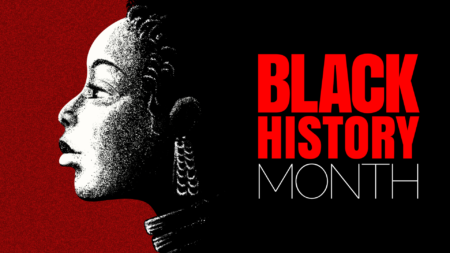
In 1976, President Gerald Ford declared February as Black History Month, calling on the public to honor the neglected achievements of all Black Americans the whole month. Since then, America has celebrated Black History Month each year in February to focus attention on African American contributions and honor them from all periods of United States History—from the early 17th century when the country brought over the enslaved from Africa to the Blacks living in the United States today (www.kids.nationalgeographic.com/history/article/black-history-month).
According to www.naacp.org/find-resources/history-explained/civil-rights-leaders/carter-g-woodson, Negro History Week had come into existence before Black History Month began. In 1926, Carter G. Woodson, an African American historian, established Negro History Week to focus attention on other Black Americans. He believed Black people should be proud of their heritage, and he wanted America to know how the country overlooked the most achievements of Blacks. He chose the second week of February as Negro History Week to coexist with the birthdays of Abraham Lincoln, the president who signed the Emancipation Proclamation ending slavery, and Frederick Douglass, an African American who became the most important leader of the movement for African American civil rights in the 19th century (www.wikipedia.org).
In 1915, in Chicago, Woodson founded the Association for the Study of Negro Life and History for Black scholars to study and preserve Black History. The year after, Woodson published a journal titled “Journal of Negro History,” now under the name “Journal of African American History.” His legacy lives on every February when schools nationwide started studying Black American History, empowering Blacks, and educating others on Black achievements. Later, Woodson’s idea of celebrating Negro History Week expanded into Black History Month.
According to www.allthingsdiverse.com/the-importance-of-black-history-month/, if we educate ourselves and others on Black History Month, we will learn how Black pioneers and inventors created technologies, started and produced changes in businesses, entrepreneurship, education, politics, public services, charity, social services, healthcare and medical professions, law enforcement, hospitality industries, the military, employment, the economy, sports, and entertainment. We will also learn about the Black civil rights activists who supported democracy, such as fighting against prejudice and bigotry in society and fighting and advocating for social justice, equity, and freedom for Blacks and all people. Furthermore, we will learn how Black people who suffered from the cruel oppression of slavery found a pathway to freedom. Learning about these services Blacks made in society is crucial for helping people eliminate racism and prejudice against Blacks, for they faced discrimination and economic inequality for the services they contributed. Despite these oppositions they faced, the Blacks persevered continuously, working hard and contributing to society so we can have a brighter future for today and tomorrow. Therefore, celebrating Black History Month can honor their legacy and create a more just society.
As a Black male, I am thankful that Carter G. Woodson found Negro History Week, which later became Black History Month. Without his establishing Negro History Week, we would not have known about our history and the full potential we have today. I am grateful to learn about the Black civil rights activists who advocated and fought for social justice so we, the Black people today, can have equal rights. I am also grateful to learn the Black people who endured slavery took a stand to fight for their freedom so we, the Black people today, can enjoy the blessings of liberty from servitude.
Since countless African Americans made history in America, I pray that I and other Black people nationwide will learn more about our Black leaders and heroes and how they sacrificed their time, energy, and lives to give us a better future today. I pray that learning and celebrating Black History Month will inspire me and other Blacks to hope, hope that we can overcome trials and temptations, hope that we can make a difference in life, hope that we can accomplish our goals and dreams, and hope that we can make a positive change in our communities and for our nation—Kenneth Sullivan.


